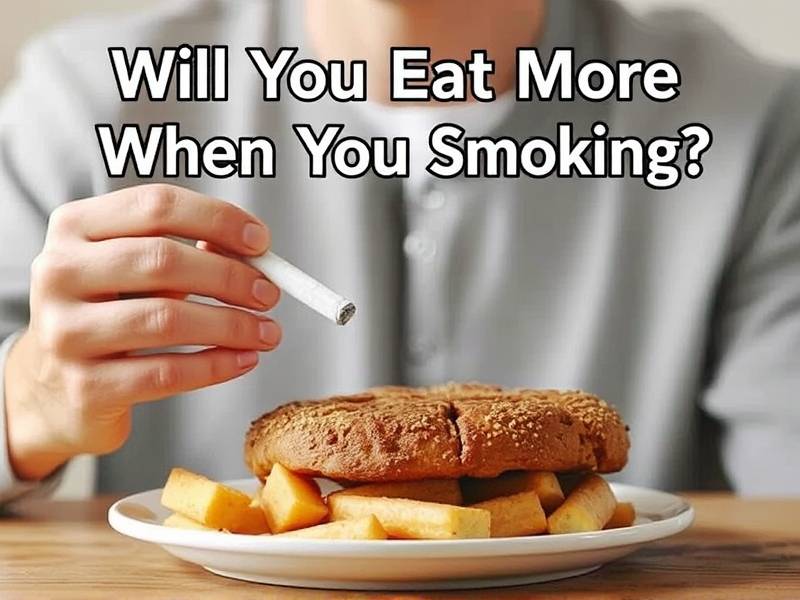Will You Eat More When You Quit Smoking?
The Unexpected Connection: Smoking Cessation and Increased Eating Habits
Introduction: Quitting smoking is a significant step towards improving one's health, but it often brings unexpected challenges. One common concern among smokers who are contemplating quitting is the possibility of increased eating habits. This article explores the relationship between smoking cessation and changes in eating behavior, offering insights and practical tips for those looking to kick the habit without gaining weight.
I. The Science Behind Smoking and Eating A. Nicotine's Role in Appetite Suppression Nicotine, a key component of cigarettes, acts as an appetite suppressant. When smokers quit, they may experience an increase in appetite due to the absence of this stimulant.

B. Stress and Emotional Eating Smokers often turn to smoking as a way to cope with stress or boredom. Without this crutch, some individuals may find themselves turning to food as a means of comfort or distraction.
II. Common Eating Patterns After Quitting Smoking A. Snacking Habits Many smokers report an increase in snacking after quitting, often opting for high-calorie snacks like chips or candy.

B. Larger Meals Some individuals may find themselves consuming larger meals when they quit smoking, potentially leading to weight gain if not managed properly.
III. Strategies for Managing Eating Habits During Smoking Cessation A. Mindful Eating Practices Practicing mindful eating involves being fully present and aware during meals, which can help reduce overeating and improve overall nutrition.
B. Healthier Alternatives to Smoking Finding healthier alternatives to smoking can help manage both nicotine cravings and appetite issues. Examples include chewing gum, exercising, or engaging in hobbies.
IV. Incorporating Exercise into Your Routine Regular physical activity can aid in managing weight gain during smoking cessation by burning calories and improving metabolism.
V. Seeking Support from Friends, Family, or Professionals Support from loved ones can be invaluable during the quitting process. Additionally, consulting with a healthcare professional can provide personalized advice on managing eating habits while quitting smoking.
Conclusion: While it's natural to worry about increased eating habits when quitting smoking, understanding the science behind these changes can help you navigate this transition more effectively. By adopting mindful eating practices, seeking support from others, and incorporating exercise into your routine, you can successfully quit smoking without sacrificing your health or waistline. Remember that making positive changes is a journey; be patient with yourself as you work towards your goals.
